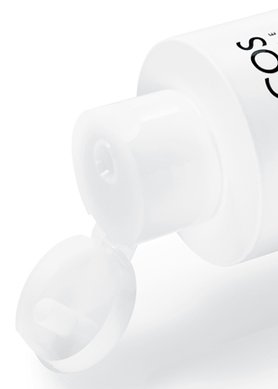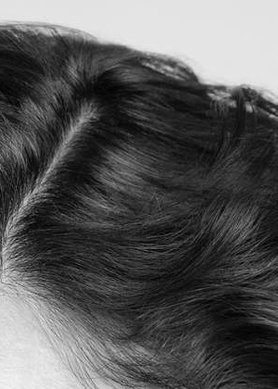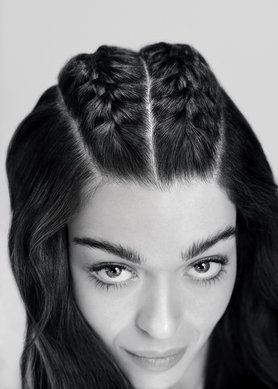
Like our skin, scalps are susceptible to changes and disruption – triggered by both external and internal aggressors. At times, these scalp disturbances can lead to discomfort and sensitivity, which makes it tricky to adhere to your standard shampoo and hair care products. If your scalp is sensitive and sore, it’s often difficult to navigate and determine the exact cause. There are many reasons for scalp sensitivity, so we’ve curated our expert advice to help you identify the causes of your sensitive scalp and how to manage it.
What is a sensitive scalp?
Having a sensitive scalp means experiencing uncomfortable sensations on the scalp in response to stimuli1. Everyone experiencing sensitive scalp will do so in different ways, but typical hallmarks can include:
- Sensitivity
- Redness
- Tightness
- Uncomfortable sensations
- Flaking
If you identify with any of these feelings of discomfort, it’s likely that you have a sensitive scalp. It’s also worth noting that having sensitive skin on your face and body doesn’t automatically mean you will experience the same signs of sensitivity in your scalp1.
Why is my scalp sensitive?
Now that you’ve determined that your scalp is on the sensitive side, your next question is probably, ‘what causes a sensitive scalp?’ Well, when discussing scalp sensitivity, it’s important to understand the role of the scalp microbiome.
The scalp microbiome is a delicate ecosystem of bacteria. A well-balanced scalp microbiome keeps out external aggressors and regulates pH levels, excess sebum production and nutrients. When the function of the scalp microbiome is compromised, it can make us more susceptible to scalp concerns like dandruff. This signifies a clear cause-and-effect between a disrupted scalp microbiome and a sensitive scalp2.
There are many reasons for scalp sensitivity, and triggers may be internal (hormonal or emotional responses) or external (topical products or environmental changes)3. Below, we have outlined some of the more common causes of a sensitive scalp.
Harsh shampoo ingredients
Shampoo is essential to cleanse the scalp of dirt, oil, product buildup and other debris, but a shampoo with harsh ingredients can rob the scalp of moisture – and do more harm than good. Sulfates are commonly used in shampoos because they make such a successful cleansing and foaming agent. However, they often don’t agree with sensitive scalps, inducing dryness and other types of scalp discomfort.
This is where sulfate-free shampoos can be an equally efficacious alternative to traditional shampoo formulas. Sulfate-free shampoos are formulated with different types of foaming agents that still effectively clean the scalp and hair, while mitigating signs of sensitivity.
Certain laundry detergents and hair styling products
A shampoo might not be the only culprit behind your sensitive scalp – there are many other hair styling products or other topical agents that can trigger discomfort, such as:
- Soaps
- Conditioners
- Cosmetics
- Laundry detergents
- Hair dyes
- Chemical treatments (like relaxers)
This isn’t an exhaustive list, though. Certain fragrances and ingredients (like sulfates) can also upset the scalp microbiome and cause tenderness for sensitive scalp types.
Climate and environmental changes
While topical products tend to be major triggers for sensitivity in scalps, environmental aggressors are equally common1.
Some of the environmental factors that may induce scalp sensitivities include:
- Sunburn/exposure to UV rays – this is common in the hair parting or any areas affected by hair fall or thinning
- Temperature fluctuations – excessive heat, wind or cold weather can upset formerly balanced scalps and even cause different types of dandruff
- Overly hot showers – these can remove natural oils that keep your scalp hydrated
- Pollution – continual exposure to air pollution can aggravate the scalp
Hair extensions or tight hair styles
While it’s important to be conscious of the ingredients and products that you apply to your sensitive scalp, you can reinforce these with good hair care habits.
Over extended periods of time, hair extensions and tight hair styles can increase sensitivity in scalps; and even, in some cases, cause hair fall. That’s why we suggest loose hair styles that don’t tug or pull the hair. This isn’t just during the day, but overnight, too – as movement during sleep can yank the hair. If you have a sensitive scalp, you may also want to avoid extensions: the extra weight they place on your hair can lead to scalp discomfort.
Internal stressors and other scalp concerns
If you have ruled out possible external reasons for scalp sensitivity, your scalp tenderness and discomfort may be the result of a deeper, pre-existing scalp concern (like dandruff). Otherwise, it be triggered by internal changes in your body. Hormonal fluctuations or stress can also have physiological manifestations – like sensitivity in your scalp or skin. In these cases, we suggest reaching out to a medical professional for further guidance.
Sensitive scalp treatment tips
Once you feel more confident in determining what causes your sensitive scalp, you can begin to implement changes to your hair care routine and lifestyle to reduce feelings of discomfort. While sensitive scalp treatment isn’t a one-size-fits-all approach, there are three management pillars you can follow to help ease sensitivity:
- Isolate the triggers of your scalp sensitivity and eliminate them from your lifestyle.
- Adopt a gentle approach to scalp care and take a break from heat styling.
- Use a shampoo that’s formulated specifically for sensitive scalps.
Read on as we dive into these three key pillars.
1. Isolate and eliminate your triggers
If your scalp is sensitive and uncomfortable , one of the best ways to manage it is to reduce or eliminate exposure to your potential triggers1.
You may also need to try a self-guided ‘elimination’ study of sorts to help determine your underlying triggers. This relates not only to hair care products, but to anything else that might come into contact with your scalp: such as soaps or laundry detergent.
Your shampoo and conditioner are a great place to start. You might also consider eliminating any most recently added products (for example, a new styling mousse or detergent brand). Monitor your scalp sensitivity throughout this process to keep track of how you’re feeling.
2. Be gentle on your scalp
Sensitive scalp treatment is about more than simply avoiding harsh ingredients; it also means supporting your scalp with good lifestyle habits. We suggest the following tips:
- Be sun smart – always wear a hat to protect your scalp from UV rays
- Cut back on heat styling tools
- Wash your hair with lukewarm, rather than hot, water
- Don’t use a harsh exfoliant on your sensitive scalp – it can dry out the scalp and weaken your skin moisture barrier further
- Gently massage your scalp as you shampoo
3. Use a targeted shampoo
To take a more functional role in your sensitive scalp treatment, consider substituting your traditional shampoo for a formula that is specifically designed to alleviate scalp sensitivity.
For the best results, we recommend Dercos Anti Dandruff Shampoo For Sensitive Scalp, which utilises sulfate-free technology to provide a gentle, yet efficacious, solution to rebalance the scalp and deliver comfort. For best results, use three times per week for four weeks before reducing to once weekly.
1https://karger.com/sad/article/9/6/407/862911/Sensitive-Scalp-and-Trichodynia-Epidemiology
2https://pmc.ncbi.nlm.nih.gov/articles/PMC10939504/
3https://pubmed.ncbi.nlm.nih.gov/36174707/







